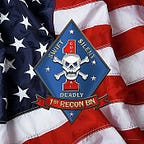“Homeland” and “The Manchurian Candidate”
In her essay “Bonnie and Clyde,” Pauline Kael quotes a professor discussing the film version of “The Manchurian Candidate”: “I didn’t like it,” he says, “I can suspend disbelief only so far.” This Sunday night, millions of people will happily suspend disbelief for the season-two première of “Homeland,” on Showtime. The show, which dominated the Emmys last weekend, has won fans in the past year by painting an intricate, sympathetic portrait of an American prisoner of war turned possible terrorist (Damien Lewis) and of the obsessive, bipolar C.I.A. agent determined to stop him (Claire Danes). There are multi-layered subplots throughout, but the crux of the series is the will-he-won’t-he suspense over Lewis’s conflicted soldier.
The show, as Ruth Margalit noted recently, is based on an Israeli series, “Hatufim,” but an even more obvious precedent is Richard Condon’s 1962 novel “The Manchurian Candidate.” Condon’s famous thriller spawned several cinematic adaptations, but what’s less well known is that the novel itself was inspired, in part, by a remarkable 1955 Army study on American prisoners of war. In 1957, The New Yorker ran a landmark article about the study (aptly titled “The Study of Something New in History”), by Eugene Kinkead, which explored in-depth and for the first time the various methods of indoctrination to which American prisoners may have been subjected while in captivity. According to Kinkead, the Korean War was the first time in history that the Army had dealt with an opponent “who attempted to manipulate the minds of prisoners.”
Kinkead’s article is a riveting look at how a surprisingly large number of American prisoners of war in Korea (one in seven, the Army estimates) were allegedly involved in “some sort of collaboration with the enemy,” including composing anti-American propaganda or informing on their fellow-soldiers. In a 2003 Critic at Large piece on Condon and “The Manchurian Candidate,” Louis Menand writes that Army fears of indoctrination, though exaggerated, were still grounded in reality. In July of 1950, an Army officer made a radio broadcast in support of North Korea after spending only two days in captivity. After the war ended, Menand notes, “twenty-one Americans refused to return to the U.S.; forty announced that they had become Communists; and fourteen were court-martialled.” As a result of the study’s findings, Kinkead writes, President Eisenhower issued an extraordinary six-point Code of Conduct for members of the armed forces, which included avowals like “I will make no oral or written statements disloyal to my country and its allies or harmful to their cause” and “I will never forget that I am an American fighting man.” That American servicemen would have to reassert these basic tenets was considered unprecedented at the time.
In the popular imagination, the term “brainwashing” arose to describe what was, or might be, happening. It was coined, Menand writes, by the journalist Edward Hunter, who spent time in Asia serving in the U.S. Office of Strategic Services during the Second World War. The term came from Hunter’s translation of the Chinese word his-nao, or “cleansing of the mind.” Ultimately, the fears and paranoia that the term elicited became, in their own way, a weapon. A former Army psychiatrist Kinkead spoke with argued that the idea that you can “remove a man’s brain and wash out what’s in it,” then “wash into it whatever you want,” was a fantasy. It could, however, the Army believed, have a self-fulfilling power. If prisoners of war were afraid of being “brainwashed,” the thinking went, they might be more susceptible to indoctrination.
“The Manchurian Candidate” and “Homeland” explore the same subject, but in markedly different ways. Condon’s novel was an exhilarating satire. He wrote pulp of the highest level — Condon, Menand writes, was like “Mickey Spillane with an M.F.A.” The book reflected its author’s show-biz background. He was “a cynic of the upbeat type,” Menand explains, which meant that “his belief that everything is basically shit did not get in the way of his pleasure in making fun of it.” Before he was a writer, Condon worked as a movie publicist, first at Walt Disney, beginning in 1936, and then at a number of other studios, before he finally left the business in 1957. His flair for writing, he later said, came from years of watching movies (ten thousand in all, he estimated).
The power of a show like “Homeland” is that it takes the Cold War trope of the brainwashed soldier, which Condon and others mastered, and unpacks it in a subtle and completely modern way. In a post-P.T.S.D. world, the audience sympathizes with Brody, Lewis’s emotionally tattered soldier, on a level that the readers of Kinkead’s 1957 article, or Richard Condon’s novel, never could. We feel the same horror that Brody does when he finds Abu Nazir’s son, Isa, dead in the rubble after an American drone attack. The series turns the mid-century American fear of a sleeper agent on its head. Brody is not a sleeper. He is a loyal soldier who comes to feel empathy for — and solidarity with — his captor.
“Homeland” and “The Manchurian Candidate” do have points in common, though. In last season’s finale, Brody defends his failure to detonate a suicide bomb by explaining that he will be a more potent weapon as a politician than as a martyr. As Menand noted in his 2003 piece, “It is not, in Condon’s vision, the Communist world on one side and the free world on the other. It is the manipulators and the manipulated, the conditioners and the conditioned, the publicists and the public.”
